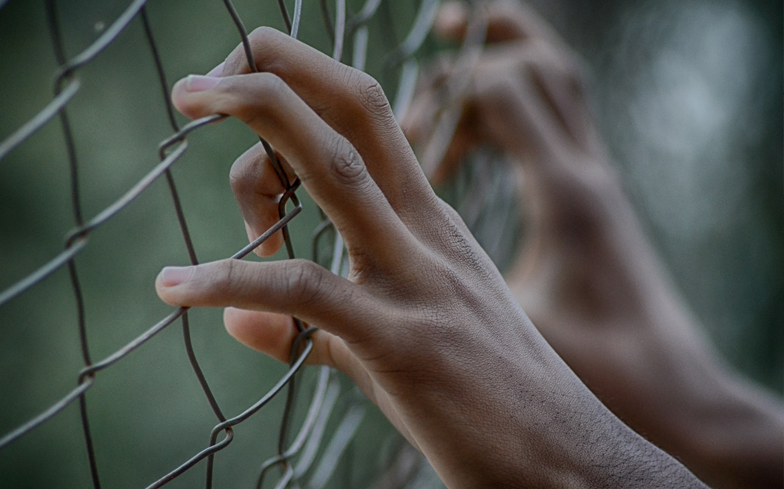
We’ll never really know for sure how many LGBT+ people there are living in the world.
But if we apply the common assumption that at least 5% of the population is gay, then it’s safe to say we have at least 350 million LGBT+ brothers and sisters living on this insignificant rock of ours.
More than a third of the 196 countries recognised on this planet consider homosexuality illegal. If we live in a global village, what is life really like for our neighbours?
First let’s start with the countries that offer rights to LGBT+ people.
Full legal rights and marriage equality – year same-sex marriage was achieved (in dark green on the map).
Netherlands (2001), Belgium (2003), Canada (2005), Spain (2005), South Africa (2006), Norway (2009), Sweden (2009), Portugal (2010), Iceland (2010), Argentina (2010), France (2013), Uruguay (2013), New Zealand (2013), Brazil (2013), United Kingdom (not Northern Ireland) (2014), Ireland (2015), Luxembourg (2015), United States (2015), Mexico (2016), Denmark (2016), Colombia (2016), Germany (2017), Finland (2017), Malta (2017).
Civil partnerships and some legal rights (in mid green on the map).
Chile, Ecuador, Cyprus, Israel, Austria, Croatia, Czech Republic, Hungary, Slovenia, Switzerland, Estonia, Greece, Italy, Australia.
Homosexuality with protections written into law (in light green on the map).
Cape Verde, Belize, Costa Rica, Guatemala, Honduras, Nicaragua, Panama, Cuba, Bolivia, Surinam, Venezuela, Georgia, Nepal, Japan, Mongolia, Philippines, Thailand, Poland, Romania, Slovakia, Moldova, Ukraine, Latvia, Lithuania, Albania, Bosnia, Bulgaria, Kosovo, Serbia, Monaco, Fiji, Vanuatu.

© Gay Times
Legal (in orange on the map).
Equatorial Guinea, Seychelles, Lesotho, Mozambique, DominicanRepublic, Haiti, Paraguay, Kazakhstan, Kyrgyzstan, Tajikistan, Abkhazia, Armenia, Azerbaijan*, Russia, Turkey, Bahrain, Iraq, Jordan, Lebanon, China, Indonesia, Macedonia*, Bahamas*, Belarus, Vatican City, Federated States of Micronesia, Marshall Islands, Nauru, Palau.
*Allowed to serve openly in the military but no protections written into law.
However, as we all know in some countries it’s still very dangerous for our LGBT+ brothers and sisters to live freely and openly.
No laws for or against homosexuality (in grey on the map).
Benin, Burkina, Cote D’Ivoire, Mali, Niger, Central African Republic, Democratic Republic of the Congo, Gabon, Rwanda, Djibouti, Madagascar, North Korea, South Korea, Cambodia, Laos, Vietnam, Uganda.
Homosexuality illegal – maximum number of years in prison that can be sentenced (in red on the map).
India (life), Gambia (life), Ghana (life), Tanzania (life), Sierra Leone (life), Barbados (life), Guyana (life), Bangladesh (life), Trinidad and Tobago (25), Malaysia (20), Egypt (17), Antigua and Barbuda (15), Kenya (14), Malawi (14), Zambia (14), United Emirate State (14), Papua New Guinea (14), Tuvalu (14), Solomon Islands (14), Kiribati (14), Nigeria (Northern Nigeria Protectorate and Southern Nigeria Protectorate) (14), South Sudan (10), Ethiopia (10), Dominica (10), Granada (10), Jamaica (10), Saint Kitts and Nevis (10), Saint Lucia (10), Sri Lanka (10), Tonga (10), Zimbabwe (10), Saint Vincent and the Grenadines (10), Botswana (7), Samoa (7), Qatar (7), Kuwait (6), Cameroon (5), Senegal (5), Comoros (5), Mauritius (5), Libya (4), Morocco (3), Togo (3), Uzbekistan (3), Guinea (3), Eritrea (3), Oman (3), Syria (3), Tunisia (3), Algeria (2), Burundi (2), Turkmenistan (2), Pakistan (2), Liberia (1), Bhutan (1), Maldives (whipping for 20 strokes), Angola (fine and restrictions), Chad, Namibia, Swaziland.
Death penalty for homosexuality (in black on the map).
Sudan (for a third conviction), Mauritania (Muslim men only), Nigeria (where the northern states have adopted Sharia law), Qatar (Muslims only, for extramarital-sex regardless of the gender of the participants), Somalia, Iran, Saudi Arabia, Yemen, Islamic State of Iraq and the Levant, Afghanistan (in territory controlled by Al-Qaeda).
Countries in light grey.
No accurate information at time of print.
As we’ve seen far too often in 2017, LGBT+ people across the world are still under attack for simply being themselves.
We all need to be aware of the countries that continue to persecute our community so we can act through protest, aid, and urging our establishments and mainstream media to hold these outdated attitudes to account.
You can use your voice on social media, be selective with your next holiday destination, and continue to support LGBT+ people across the globe.



